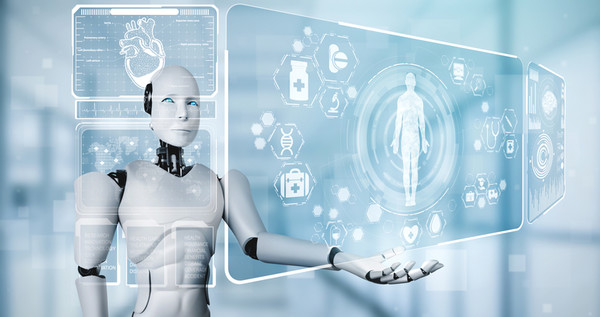The Ministry of Health and Welfare (MOHW) and the Ministry of Food and Drug Safety (MFDS) said on Thursday that they collaborated with three other government institutions to select three digital health technology solutions as the first "innovative medical devices" under a new evaluation system.
Two are from Welt and Aimmed for treating insomnia, and one from JLK Bio for cerebral infarction.

Earlier on Oct. 31, the government launched a system, called, “the Integrated Inspection and Evaluation System for Innovative Medical Devices,” to improve regulations for innovative medical devices using artificial intelligence (AI), big data, and digital technology to accelerate their use in clinical applications.
The five institutions include the MOHW, the MFDS, the Korea Health Industry Development Institute (KHIDI), the Health Insurance Review and Assessment (HIRA), and the National Evidence-based Healthcare Collaborating Agency (NECA).
They collaborated to conduct an integrated review and evaluation process that was previously carried out individually in many steps.
Accordingly, the evaluation process was reduced from 14 stages to approximately four or five stages. The evaluation now focuses on clinical utility, and medical outcomes, and is lastly deliberated by the relevant committee.
As of October, eight medical devices were applied under this innovative medical device category from which three products were selected, including two digital insomnia treatment devices -- from Aimmed and Welt -- and one cerebral infarction diagnosis assistance software from JLK Bio.
Both Aimmed and Welt have developed chronic insomnia digital therapeutics (Dtx) which applies software as a medical device (SAMD) as a standard treatment protocol for insomnia via a mobile app. They are the first DTx devices proven to improve insomnia through confirmatory clinical trials and are currently undergoing clinical trials in Korea.
JLK Bio’s cerebral infarction diagnosis assistance software is a medical image diagnosis assistance software that extracts MRI image characteristics of patients through AI learning for atrial fibrillation and ischemic stroke classification.
This product has already been approved and is expected to enter the market as early as January next year but will be without insurance benefits as it has already been judged as an existing technology from a health insurance perspective. However, this designation provides an opportunity to enter the medical field and further prove its new value. Similarly, the DTx devices will also enter the medical market without insurance upon completion of the approval process.
"This integrated inspection system for innovative medical devices is a good example of the five agencies' collaborative efforts to actively improve regulations to revitalize advanced technologies in medical devices including AI and digital health technologies." MOHW’s First Vice Minister Cho Kyoo-hong said. "We hope this will help our medical device industry become more globally competitive and lead the world in high-tech fields and improve medical benefits for patients.”
The integrated inspection system for innovative medical devices can be registered through the MFDS’ Medical Device Electronic Complaint Desk on the first week of each month.
Related articles
- Korea one step behind DTx powerhouses but expects strong domestic growth: KPMG
- Korea to lead international medical device regulations at Saudi meet this week
- How should Korea deal with rapidly growing digital therapy device industry?
- Aimmed’s Somzz becomes Korea’s first approved DTx device for insomnia
- ‘Innovative reimbursement’ essential to foster digital bio-health sector
- WELT’s insomnia therapy device clinches Korea’s 2nd approved DTx spot
- Nunaps’ VR-based software designated as innovative medical device for visual impairment
- AimMed challenges to develop DTx for Galaxy Watch
- JLK partners with Harvard Medical School to study stroke AI solutions

